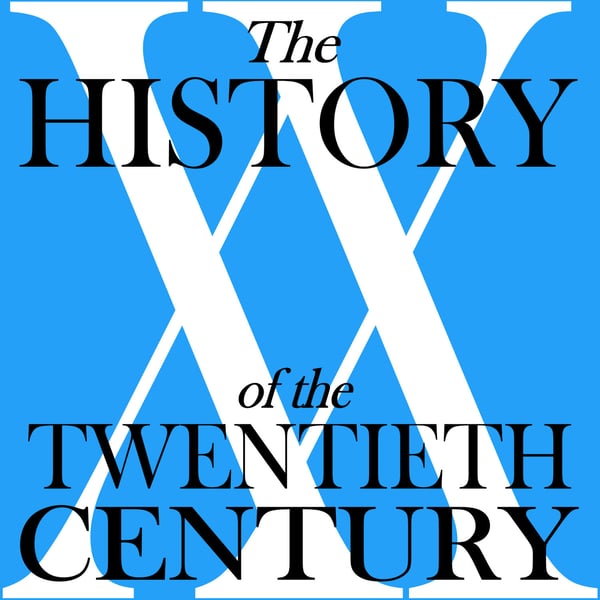160 The Fourteen Points
The History of the Twentieth Century
Mark Painter
4.8 • 719 Ratings
🗓️ 7 July 2019
⏱️ 37 minutes
🧾️ Download transcript
Summary
Leon Trotsky challenged the Allies to state what great cause they were fighting for that justified continuing the war. With the Central Powers showing signs of readiness to negotiate, Woodrow Wilson lays out his conditions.
Transcript
Click on a timestamp to play from that location
| 0:00.0 | I am the last man in the world to say that the succor which is given from America is not in itself something to rejoice at greatly. |
| 0:26.6 | But I also say that I can see more in the knowledge that America is going to win a right to sit at a conference table when the terms of the peace are discussed. |
| 0:36.6 | That conference will settle the destiny of the peace are discussed. |
| 0:42.7 | That conference will settle the destiny of nations and the course of human life for God knows how many ages. It would have been a tragedy, a tragedy for mankind, |
| 0:50.1 | if America had not been heard there, and with all her influence and her power. |
| 0:57.6 | British Prime Minister David Lloyd George on the entry of the United States into the Great War. |
| 1:05.4 | Welcome to the history of the 20th century. |
| 1:48.3 | Music to the history of the 20th century. Episode 160, the 14 points When the United States entered the Great War, it was a hopeful moment for the allies. |
| 1:57.0 | America's value to the war effort materially and militarily was potentially vast. |
| 2:03.1 | It might even tip the balance between defeat and victory. |
| 2:08.3 | But there was another aspect to America entering the war, one alluded to in the statement by the British Prime Minister David Lloyd George that I just read to you, |
| 2:17.9 | the U.S. brought to the war its democratic reputation and its lack of material interest in the |
| 2:24.1 | outcome. The addition of the U.S. to the Allies, along with the February Revolution in Russia, |
| 2:31.1 | made the Allies, in fact, what they already claimed to be in propaganda, |
| 2:35.6 | a vast coalition of the largest, richest, most powerful, and most democratic states on earth, |
| 2:42.1 | banding together against an opposing coalition of imperialist, expansionist, autocratic empires. |
| 2:50.1 | And besides that, there was the personal credibility of Woodrow Wilson, |
| 2:54.7 | the U.S. president and world leader who had spent years pressing for an end to the war while |
| 3:00.2 | other leaders were planning offensives, who had called for peace without victory, while everyone |
| 3:05.7 | else was pledging to fight on until total victory. |
| 3:09.8 | Yes, Wilson's credibility was a boost to the Allies, |
| 3:13.1 | and he could be useful in the event that some kind of compromise peace had to be worked out. |
... |
Please login to see the full transcript.
Disclaimer: The podcast and artwork embedded on this page are from Mark Painter, and are the property of its owner and not affiliated with or endorsed by Tapesearch.
Generated transcripts are the property of Mark Painter and are distributed freely under the Fair Use doctrine. Transcripts generated by Tapesearch are not guaranteed to be accurate.
Copyright © Tapesearch 2025.

